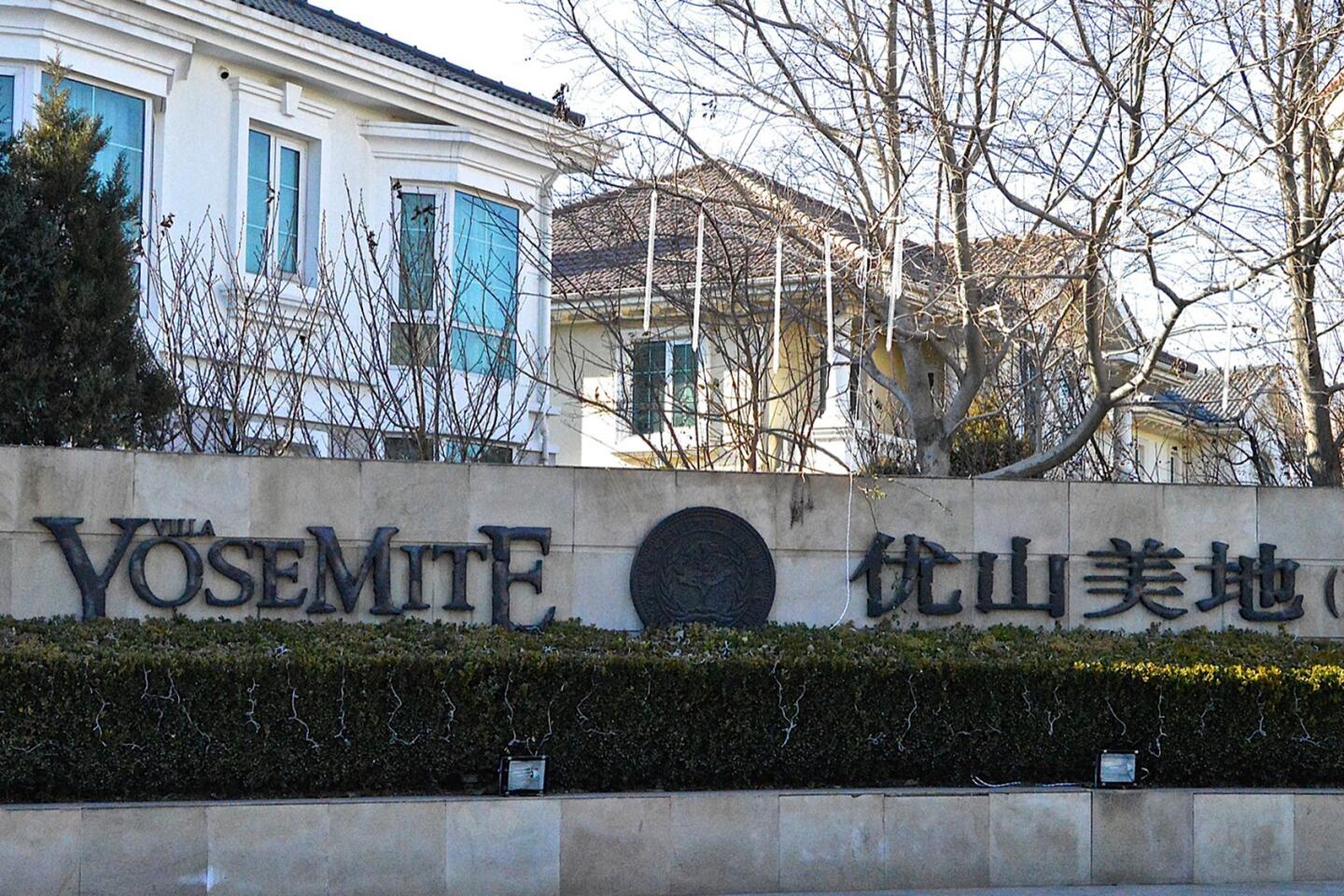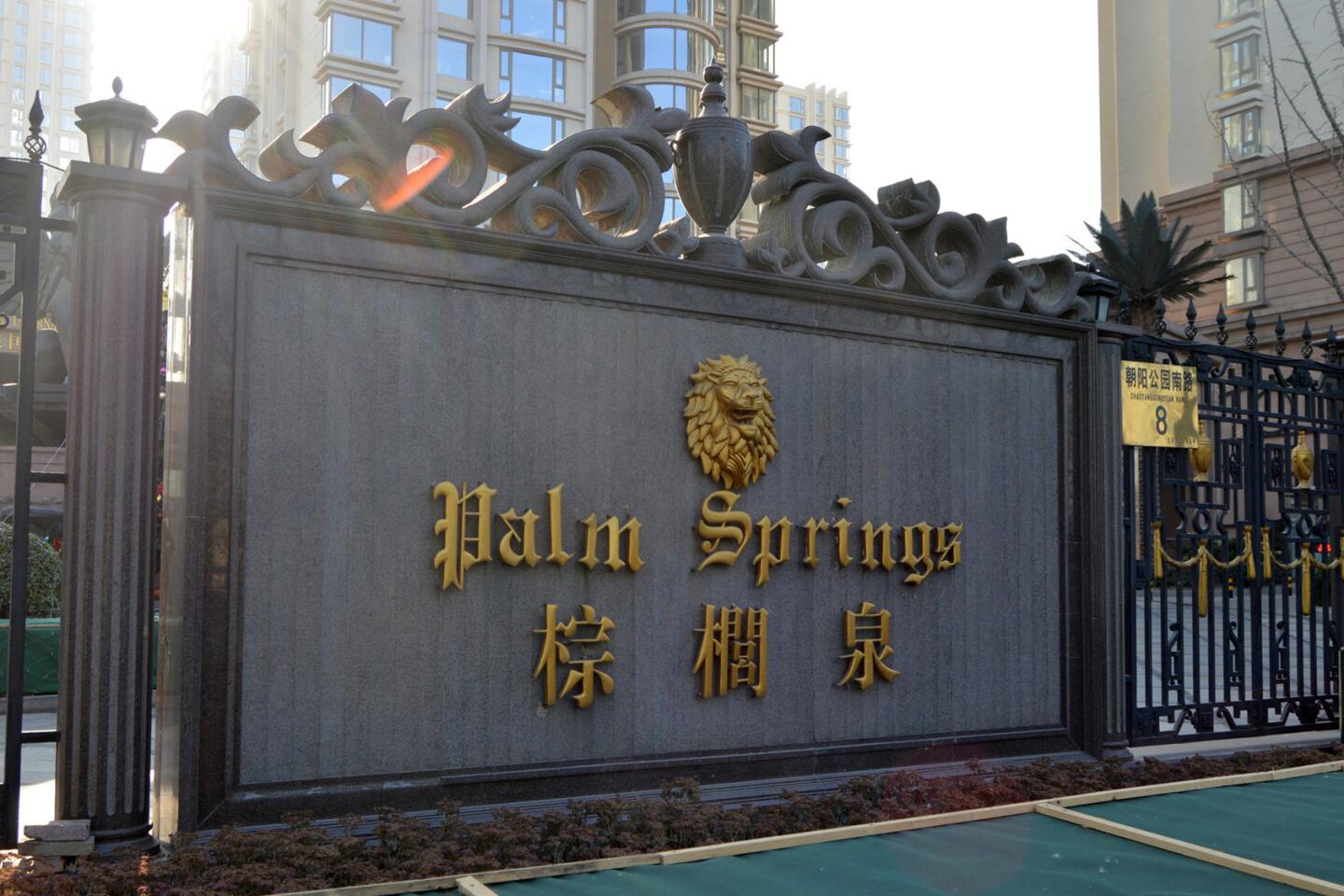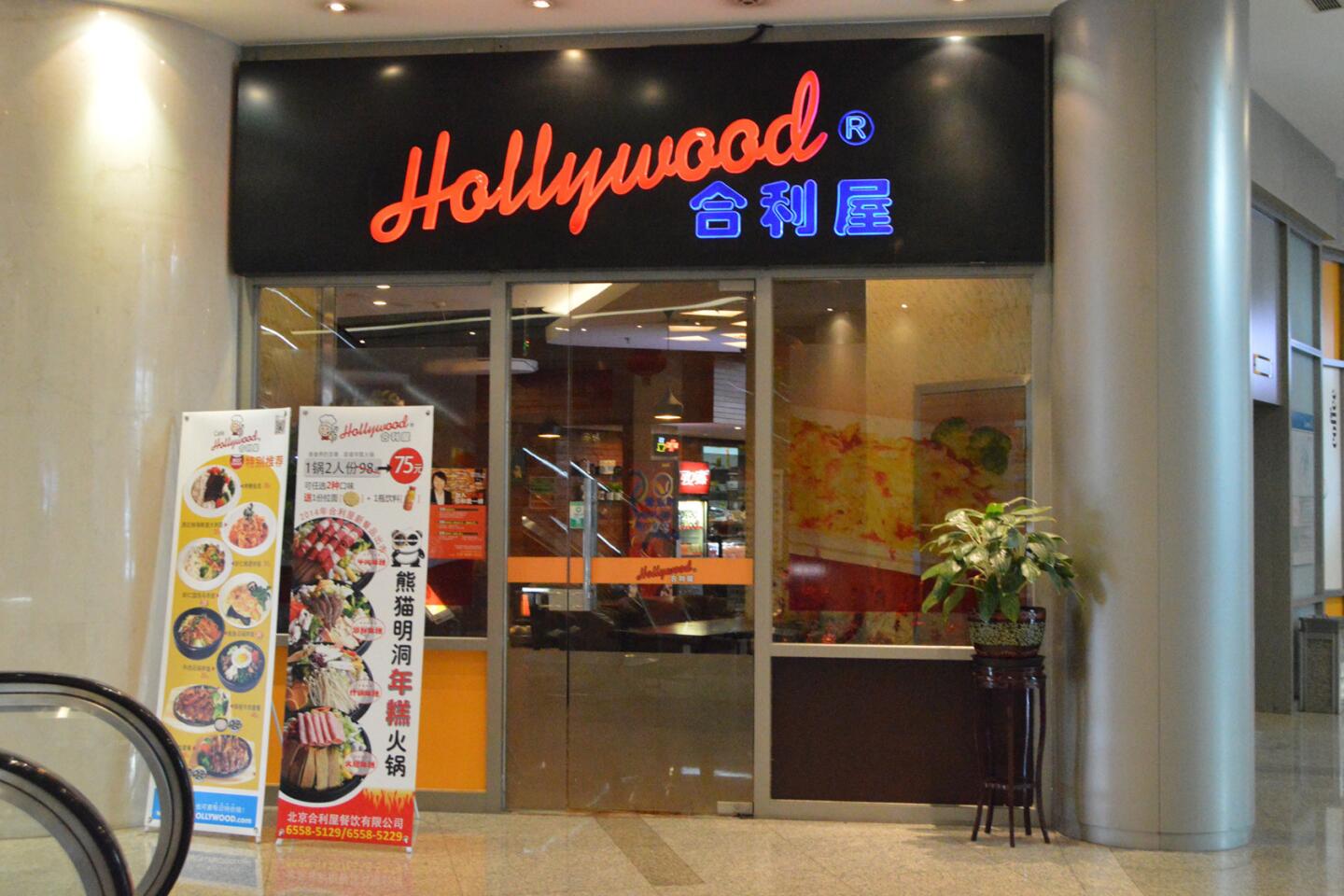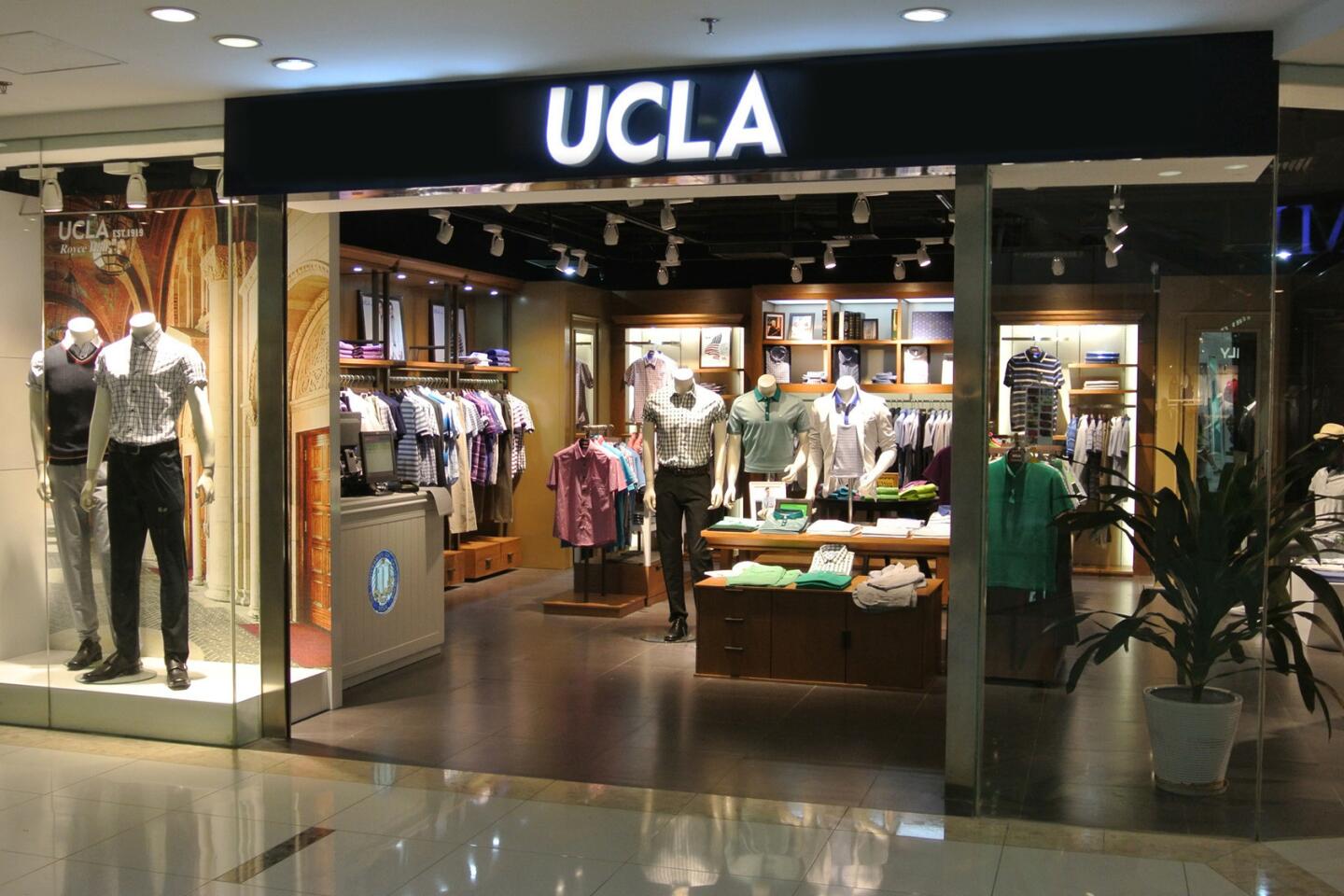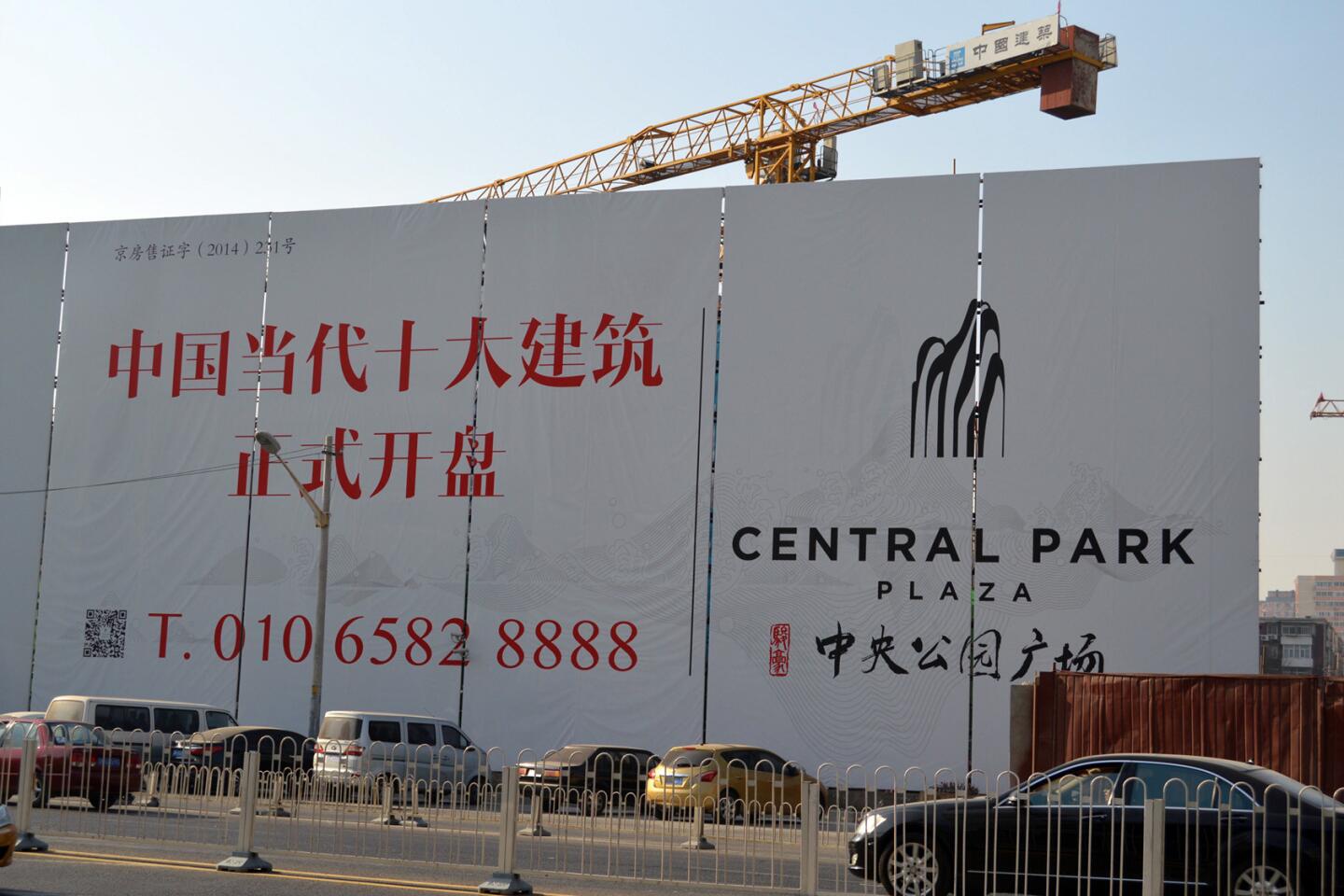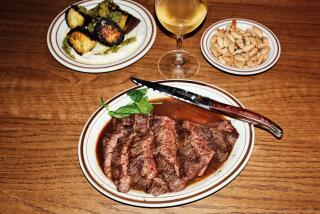Great Read: In China, the California name and connection are golden
BEIJING — Thousands of Beijingers wake up every day in Yosemite. Hordes more have moved to Palm Springs, not to mention Orange County and Silver Lake. They shop at UCLA and go to Hollywood for a bite to eat.
All without leaving the Chinese capital.
When I first moved to China about a year ago, I fretted a tad about missing the Golden State and living in a country where everything had unfamiliar names. Instead, I’ve found it hard to escape California’s good vibrations: There seems to be a little slice of home — or at least some weird or wacky reference to it — almost everywhere you turn.
In Hong Kong, you can buy a villa in the Beverly Hills, a gated community whose amenities — a go-cart race track, indoor ski slope and pet hotel — appear aimed at those with 90210-type tastes and wallets. A new 27-story building in the territory’s Lan Kwai Fong district, packed with restaurants and bars, is called the California Tower.
Chongqing has a California Inn, and you can check into a Hotel California of one stripe or another in cities across the country (and hopefully, at some point, leave). Parents in Sichuan send tots to the California Sunshine kindergarten, while Hangzhou shoppers can engage in retail therapy at the California Sunshine mall.
Orange County — an hour’s drive north of downtown Beijing — is a housing development designed by, yes, a Newport Beach architect and built with imported American tiles and fixtures. But authenticity is hardly a prerequisite for allusion: Beijing’s Silver Lake is a gated community with large, boxy houses and no hipsters, architectural pearls or reservoir. The capital’s Yosemite subdivision, meanwhile, boasts a boulder out front that resembles Half Dome if you squint, but the homes are McMansion-style, not mini-Ahwahnees.
“California has a strong impression among Chinese for its sunshine, beach, and relaxed lifestyle, which highlights happiness, enjoyment and indulgence,” said Feifei Xu, strategy director of Labbrand, a Shanghai-based branding consultancy.
Sure, Beijing also boasts Manhattan-minded apartment complexes: Central Park, Central Park Plaza, Soho and Park Avenue. Paris is also a popular locale to name-check.
But California does stick out for the sheer multitude of shops, hotels, housing complexes and other businesses that take its inspiration from the state.
A search of records at the Trademark Office of China’s State Administration for Industry and Commerce found 271 companies — from clothing makers to lighting manufacturers — that have registered the word “California” as part of their name, compared with 63 that use “New York.” Countless other businesses never bother to register trademarks.
Of course, California and China have a long-standing relationship that dates to the gold rush era of the 19th century, when Chinese laborers came across the Pacific to toil in mines as well as on farms and railroads and in the garment industry — and faced significant institutionalized discrimination. But contemporary culture has largely overwritten those hardships in the popular imagination.
Xu, the branding expert, noted that songs such as the Eagles’ “Hotel California” and the Mamas and the Papas’ “California Dreamin’” (included on the soundtrack for Wong Kar-wai’s 1994 cult classic film, “Chungking Express”) have exerted a powerful influence on younger Chinese. They trigger, she said, “feelings of escape, exile and … a dreaming land.”
The Chinese tourists, students and investors who have gone to California in waves in recent years have returned home with visions that echo in myriad and unpredictable ways.
Take, for example, Li Beiqi, a Chinese immigrant who returned from California in the late 1980s and opened a string of eateries called California Beef Noodle King U.S.A.
A host of imitators soon jumped on the bandwagon and nowadays, if you head to a train station or shopping center food court, you’re almost bound to see one of Li’s shops (now simply called Mr. Li), or a branch of an imitator with the words California Beef Noodle prominently featured. (To my California tongue, the taste is 100% China.)
Beef noodles, though, aren’t the only “California” cuisine in China. There’s a California Barbecue south of Tiananmen Square, and a place called California Aromatic Chicken Ltd. A chain of cafes called Hollywood offers up everything from waffles to teriyaki chicken, and for dessert there was (until recently) a shop known as Hollywood Squirrel Yogurt.
In February, Southern California natives Michael Tsai and Christian Jensen opened what many Angelenos might recognize as a more “real” L.A. restaurant in Beijing. Situated in a hutong, or historic alleyway, Palms L.A. serves Mexican-Korean fusion cuisine — think kimchi quesadillas — pioneered in Los Angeles by chefs such as Roy Choi. Cocktails include a blue-and-brown mix called “L.A. Water” and another dubbed “El Immigrante,” made with yerba mate-infused vodka.
“The perception of California as a mythical place is really strong in the minds of Chinese compared to other places in the U.S.,” said Tsai, citing L.A.’s weather, proximity to China, prestigious universities and large population of Chinese exchange students.
The duo initially thought of opening a hot-pot restaurant, but realized the city was already packed with them and they needed a more distinctive theme. L.A. food trucks came to mind, and Palms L.A. was born.
The restaurant has developed something of a cult following — Mayor Eric Garcetti and several City Council members paid a visit when they were in China in November.
“The L.A. brand is a marquee brand here in China right now,” Garcetti said.
Tsai said he listens in on his Chinese customers’ discussions of L.A. and how they view the city: a place with long, warm days, one that’s romantic, idyllic and chic but laid-back.
“We’ve been able to draw on that to strengthen our business,” he said. “We want to make people feel like they’re in L.A., whether it’s the music or the food or the service, or just the overall experience of stepping out of the hutong and into Los Angeles, I think it’s really a draw for a lot of people.”
Even UCLA has seen fit to capitalize on the L.A.-as-lifestyle ethos in China. Head to a mall and you might stumble upon a store called UCLA that resembles the Gap and peddles khakis and polo shirts.
It’s not a rip-off. The university actually licenses its name to a Chinese partner, which has more than two dozen outlets across the country.
Cynthia Holmes, director of UCLA Trademarks & Licensing, explained that in markets such as China, “UCLA” signifies not just the university but also a whole host of positive attributes that makes the name work as an “aspirational” fashion brand with products far beyond Bruin T-shirts and caps.
Besides China, the school has licensees in markets such as India, Australia, Japan, the Middle East and Europe, which sell UCLA-branded clothing in both stand-alone shops and department stores. Worldwide royalties bring in nearly $1 million in annual revenue, with China one of the largest markets.
“The Southern California location, the image that there’s always sunshine, the adjacency to the Hollywood scene, Disneyland … ‘UCLA’ includes some of that imagery,” Holmes said.
Add it up and all these signs of L.A. are enough, sometimes, to make a gal feel like home is not so far away after all.
Now if I could just get a Dodger Dog or a Philippe’s French dip....
Special correspondents Nicole Liu, Tommy Yang and Sean Silbert contributed to this report.
More to Read
Sign up for Essential California
The most important California stories and recommendations in your inbox every morning.
You may occasionally receive promotional content from the Los Angeles Times.
